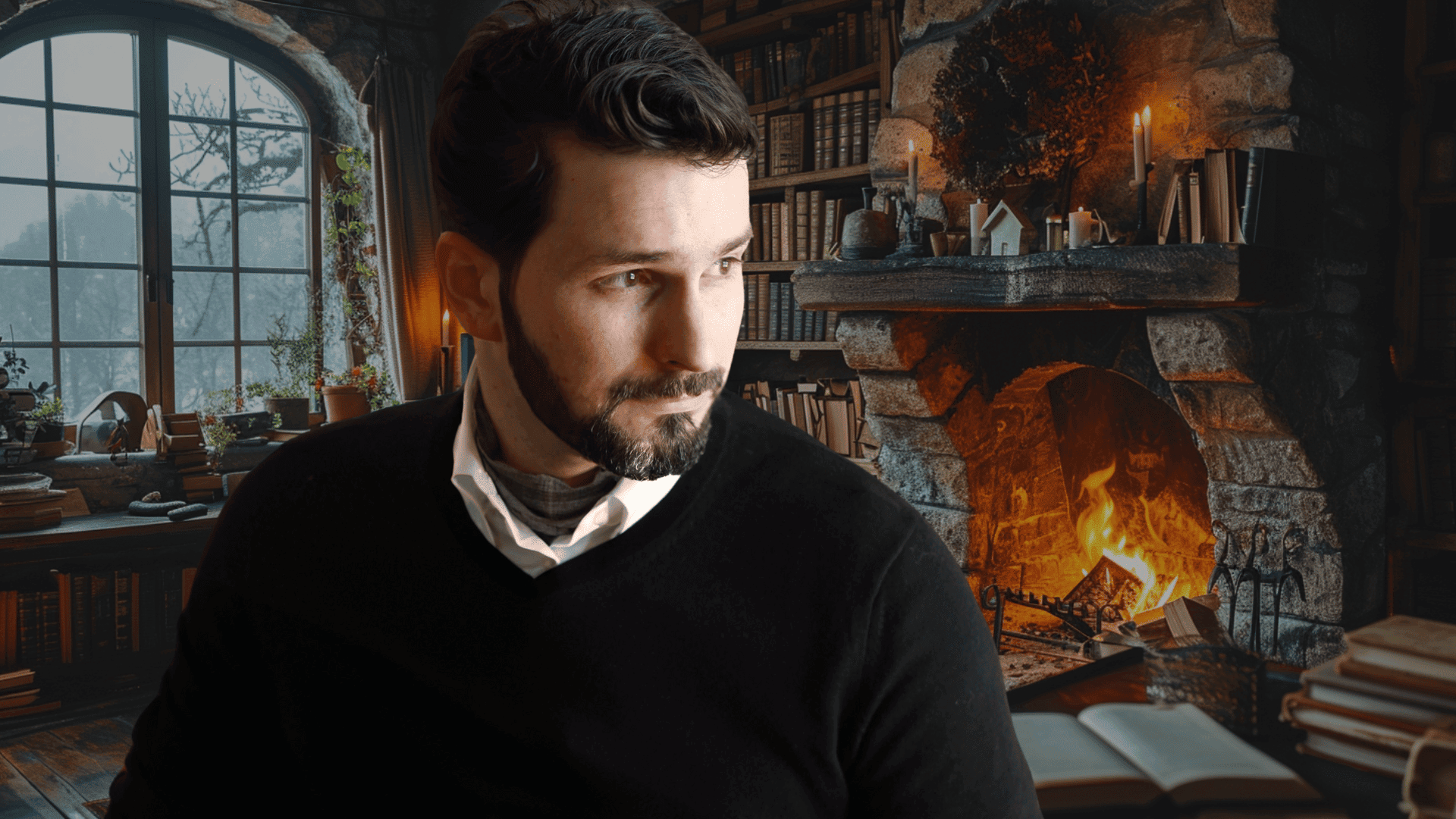If you’ve ever read Tolkien’s ‘Smith of Wooton Major,’ it’s a story of a seeming nobody who lives nowhere.
And where he lives is the frontier to elvish realms.
A gift to an unassuming child becomes a passport to a life of discovery and adventure, but the sights seen, the dangers risked, and the adventures enjoyed, are not answered. His gift is a little glowing star, and its fixed to his forehead like a third eye, an eye full of light.
By the end of the story, Smith has trekked all over the land of the fae, met the queen, and learned to dance. He emerges, trumping home across the British fields as if on the way to Emmaus.
And he realizes he is a different person, but can’t say why. His experiences have deepened and broadened his soul. His insights spill in from many worlds, not just his own little street.
At the end, he agrees that the point of it all is to drink deep of the land of fae, and pass on the gift to a new child.
I see a Catholic author in the same role.
We have woken with a thirst and a hunger to co-create worlds. To bring people to life.
If we take seriously our vocation as Catholics, then we realize we have been gifted a starbrow.
Not everyone likes it. Not everyone has happy adventures.
But we do need to be real and honest about the great things, the real things, the honest things.
The more we learn to look with elvish light, the more we begin to see.
The more we see that all people, in all times, and in all places, wrestle with an innate call to goodness, and an easing into evil.
This mystical insight turns on us too. Writing a novel can also be like writing a confession. We are sharing the limits of our own understanding, up to that point. Perhaps we’re wrong. Perhaps we’ve gone too far. But these things must be shared.
We are realms walkers. We tread paths that others can’t dream of. We pilot craft into the thin spaces between music and dance, between words and witness. And we imagine new things.
It’s not a task to take lightly.
And yet, it is something we must take lightly.
Angels fly because they take themselves lightly, while demons fall from the weight of gravity. (Chesterton)
If you haven’t mastered the message you’re writing, it may be that you’re not finished working through it. Maybe that’s why you procrastinate. Or struggle. Or fear to begin.
You have been given a glimpse of a narrative and a journey. Perhaps its for you to dream and walk a while alone.
Then, when you’ve gained some experience, you can write about it.
The world needs your words.
You’ve been called to share them.
But the God who sustains and creates and inspires wants you first. Needs you to be rooted in Heaven first.
So that like an upside down tree, we are rooted in Heaven, and fruiting our dreams and stories into the world.
And that’s the right way to think about it.
“Embarrassment about the notion of the Catholic writer is like embarrassment at the notion of Catholic universities. The faith is seen as an embarrassment and an impediment. Both attitudes founder on the same fact. Universities were born out of the heart of the Church, and so was our literature. Being a Catholic writer is not a falling away from an ideal; it is the way to fulfill the ideal completely—to see human acts in terms of the ultimate stakes of life. And to engage and amuse the reader in doing so.” Ralph Mcinerny



I also like the image of the upside down tree. And the reminder that writing, and sharing that writing, can be different goals and different levels of preparation attached.
Great point :) Thanks Jeremiah!
I like the analogy of the upside-down tree, rooted in heaven and sharing its fruits with the earth. Until we have received the Lord in our hearts, we won’t be able to share Him with the world.
Agreed, Mary Rose :) This is actually a very ancient view, from wisdom traditions. :) You’re right that we are both reservoirs and conduits of Christ!